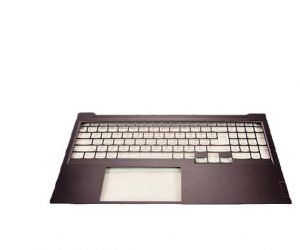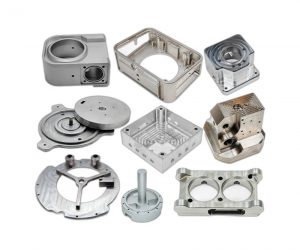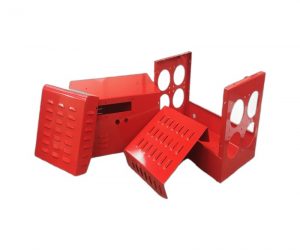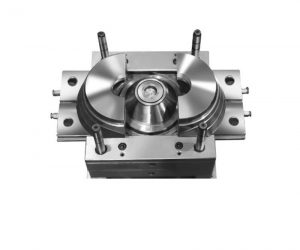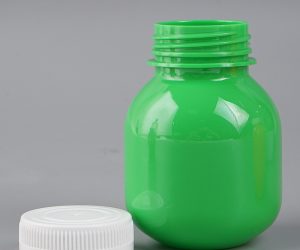A plastic mold factory is a special place where they make and process all kinds of plastic molds. They do three main things: making the mold, injection molding, and taking care of the mold. Let's break it down:
- Making the Mold: This is about creating the mold itself. Skilled designers and engineers work together to design and develop the mold based on what the final plastic product needs to be like. They think about things like the shape of the part, the material used, how complex the mold is, and how many pieces need to be made. Once they have the design, they use fancy machines like CNC milling, EDM, and wire cutting to make the parts of the mold.
- Injection Molding: This is the main way they make plastic parts from the mold. In this process, hot plastic is injected into the mold under high pressure using a machine. The plastic fills the mold and takes the shape of the core and cavity. After it cools and hardens, the mold opens, and the finished plastic part is pushed out.
- Taking Care of the Mold: This includes all the maintenance and repair work done on the mold after it's been used to make parts. Since molds are used over and over again, they can wear out. The factory keeps the molds in top shape to make sure they keep producing high-quality parts. This might involve cleaning, lubricating, and sometimes fixing or tweaking the mold parts.
A plastic mold factory does more than just make molds. Here's what else they might do:
First off, they really focus on quality. They check the mold and the plastic parts it makes to make sure everything is top-notch. They do this by measuring sizes, testing materials, and looking closely at the parts.
They also help with making prototypes. If you want to see how your product will look before making lots of them, they can create a few sample pieces using 3D printing or CNC machining. This helps you tweak your design before going big.
Picking the right material is another thing they assist with. They'll help you choose the best plastic for your project so that your final product works well and lasts long.
Some factories even help with designing your product. They work with you to make sure your design is easy to manufacture, which saves money and time.
In short, a plastic mold factory does a lot more than just make molds. They ensure quality, help with prototypes, assist in choosing materials, and offer design advice. Their skills are key to getting high-quality plastic parts for many different industries, helping businesses bring new products to life.
Plastic mold factories are key players in creating and shaping the plastic items we see around us, from toys to car parts. They're experts in making molds that help produce a wide array of plastic products.
First off, these factories have top-notch tech and gear for crafting plastic molds. They can whip up molds of any shape or size based on what you need or your design sketches. These molds then become the blueprint for making everything from car parts to toy figurines.
Next up, they offer injection molding services. This process involves heating up plastic until it's melty, then shooting it into a mold to cool and harden. The factory picks the right plastic and settings to make sure every product is consistent and high quality.
Plus, they don't just stop at making new molds. They also fix, tweak, or even rebuild existing ones according to your needs. Whether it's a simple touch-up or a complete overhaul, they've got the skills and tools to get it done right.
In essence, a plastic mold factory is like a one-stop shop for all things related to plastic mold manufacturing. They've got the experience and equipment to handle various tasks, ensuring that whatever plastic product you need, they can deliver top-quality results.
To sum it up, plastic molds are the backbone of turning raw materials into finished goods using methods like injection molding and more. They're essentially the "Mother of Industry," shaping our world one item at a time.
There are many kinds of plastic molds, which can be divided into:
- A mold for working metal.
- Processing non-metallic and powder metallurgy mold. Including plastic mold (such as two-color mold, compression mold and extrusion mold), rubber mold and powder metallurgy mold. According to the structural characteristics, the die can be divided into plane blanking die and cavity die with space. Moulds are generally produced in single pieces in small batches.
Plastic mold is a model. To make products according to this model, most of our daily necessities can not be separated from molds, such as computers, telephones, fax machines, keyboards, cups, and so on. In addition, the covers of automobile and motorcycle engines are also made from molds. More than 20000 molds are needed for a single automobile. Therefore, the role of modern life mold can not be replaced, as long as mass production is inseparable from mold.
A plastic mold factory is a company that specializes in designing and manufacturing plastic molds. It offers services like mold opening, injection molding, and mold processing. In this article, we will discuss each of these services and their importance to the plastic mold factory.
Mold Opening
Mold opening is the process of designing and manufacturing molds for plastic products. The process involves the use of computer-aided design (CAD) software to create a digital model of the mold. The digital model is then used to create a physical mold using different materials like steel, aluminum, and copper. The mold opening process requires expertise in design, materials selection, and precision machining.
Injection Molding
Injection molding is the process of creating plastic products by injecting molten plastic material into a mold. The plastic material is melted and then injected into the mold cavity, where it cools and solidifies. Injection molding is a widely used process in the manufacturing of plastic products. It requires precision control of temperature, pressure, and speed to ensure that the plastic material flows into the mold cavity correctly.
Mold Processing
Mold processing is the process of assembling, testing, and maintaining molds to ensure that they produce quality plastic products consistently. The process involves cleaning and polishing the mold surfaces, inspecting the mold for damage or wear, and repairing or replacing damaged components. Mold processing also includes testing the mold to ensure that it produces products that meet the required quality standards.
Importance of Mold Opening, Injection Molding, and Mold Processing
A plastic mold factory that specializes in mold opening, injection molding, and mold processing provides several benefits to its customers, including:
- Customized Designs
A plastic mold factory can design and manufacture molds that are customized to meet the unique requirements of its customers. The factory can create molds for different shapes, sizes, and product types, providing flexibility and versatility to its customers.
- Cost Savings
A plastic mold factory can offer cost savings to its customers by providing cost-effective solutions for mold design, manufacturing, and processing. By using the latest technology and materials, the factory can produce high-quality molds that are durable and cost-effective.
- Quality Control
A plastic mold factory can provide quality control to its customers by ensuring that the molds produce products that meet the required quality standards. The factory can use quality control measures like inspection, testing, and maintenance to ensure that the molds produce high-quality products consistently.
Conclusion
There is a plastic mold factory specializing in mold development, injection molding, and processing, which can bring many benefits to customers. This factory can design customized molds that are both cost-effective and of high quality. They also have a quality control process that includes inspection, testing, and maintenance to ensure that the products produced by the molds are of high quality and meet the standards. By choosing such a professional plastic mold factory, customers can rest assured to receive high-quality products that meet their special needs.
